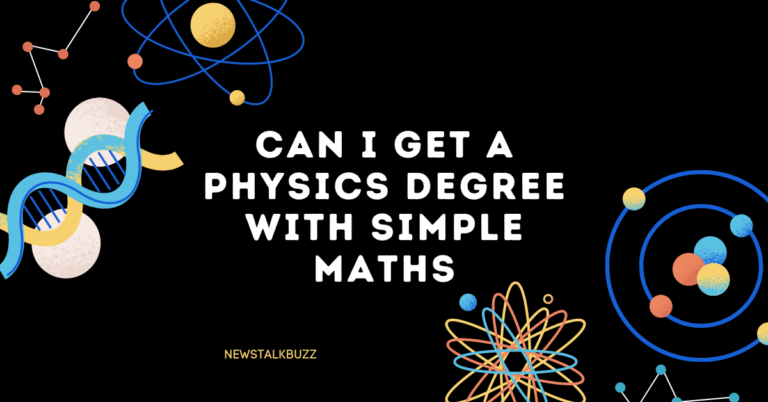Obtaining a physics degree typically requires a strong foundation in mathematics, including advanced topics such as calculus, linear algebra, differential equations, and mathematical methods in physics. While some aspects of physics can be approached with relatively simple mathematics, a comprehensive understanding of mathematical concepts is essential for studying and applying physics principles effectively.
That said, the level of mathematical proficiency required may vary depending on the specific program and the focus of your studies. Some universities offer physics programs with varying levels of mathematical rigour, allowing students to tailor their coursework to their mathematical abilities and interests.
If you’re concerned about your mathematical skills, consider taking additional math courses or seeking support through tutoring or academic resources to strengthen your mathematical foundation. Many universities also offer introductory physics courses that cover essential concepts with less emphasis on advanced mathematics, providing a starting point for students with varying levels of mathematical preparation.
Ultimately, while a physics degree typically requires proficiency in mathematics, it’s possible to succeed with dedication, effort, and support to improve your mathematical skills. If you have a passion for physics and are willing to work, you can pursue a physics degree and achieve your academic goals.

